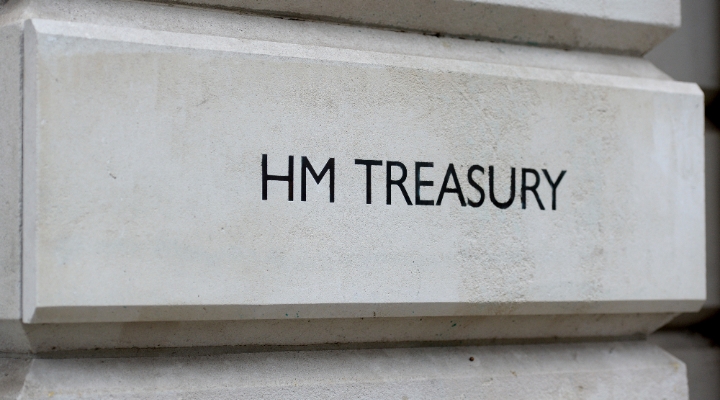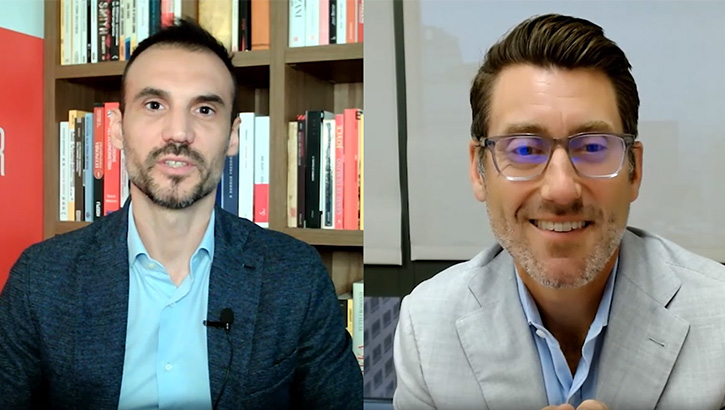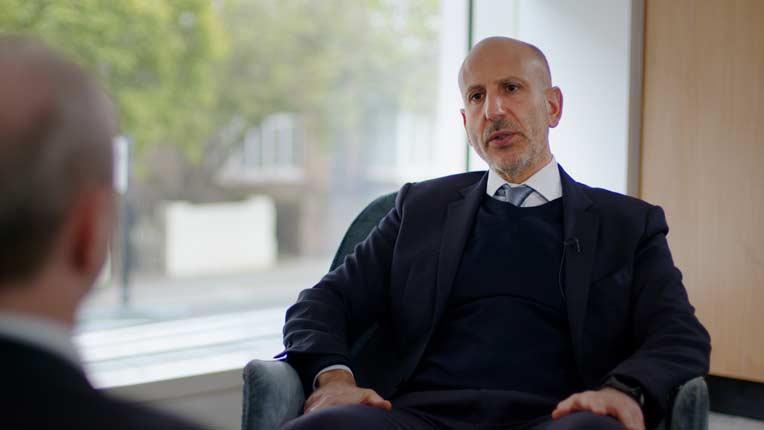Paul Kaplan: I'm Paul Kaplan, Director of Research at Morningstar Canada. Today, I'm with Larry Siegel, Director of Research at the CFA Institute Research Foundation, to discuss his article The Dilemma That Isn't: Bonds versus Bond Funds.
Larry, thank you for joining me today to discuss this article.
Larry Siegel: My pleasure.
PK: Larry, you start the article asking should investors build their own portfolios of bonds or buy shares of bond funds. To address this and some related questions, you start by presenting the arguments made by some experts. Let's discuss these arguments. The first argument in favour of holding bonds is that if you hold a bond to maturity, you'll get your money back. You counter this argument saying that getting your money back is in economic terms exactly like not getting your money back. Please explain.
LS: Well, first of all, this started as a joke. P.J. O'Rourke, a late humorist and political satirist, said that having a Social Security trust fund is exactly like not having a Social Security trust fund, and he was correct on that account. So, I riffed on that and said, getting your money back in an individually-held bond is exactly like not getting your money back in a bond fund. Now, this is precisely true only if at all times the bond fund holds the same bonds that you would hold, which also means trading them at the same time, and this can only be possible if the cash flows in and out of the fund are the same as the cash flows in and out of your individually selected bond portfolio.
These conditions are unlikely, because one, the individuals don't have access, or at least not easy access to the same bonds as those that a big fund can get. And secondly, a single bondholder will have different cash flows than the entire customer base of the fund, but the returns will be very close. So, you can interpret my comment metaphorically rather than literally in that it just doesn't matter much which strategy you pursue.
Now the economic part. The phrase "getting your money back" in the context of bond investing means getting your nominal investment back, the same number of dollars that you put in. But most investors are concerned or should be concerned with the real value of their investment, their purchasing power. If you buy a 10-year bond and there's 2% inflation over those 10 years, as there was in the 2010s, you get $0.82 back in real returns. If you bought the same bond and there was 7% inflation, as there was in the 1970s, and this could happen again, you get $0.51 back. So, like Forrest Gump and his box of chocolates, you don't know which you're going to get. So, that is not getting your money back in any meaningful way. You're getting the same amount of currency and the same number of dollars as the number that you invested, if that makes you happy. But I would not be happy if I only got $0.51 back on the dollar because of inflation.
PK: You then cite another expert who argues against bond funds because their NAV fluctuate with the market. You state, "But there is no substance to this argument." Please explain.
LS: Well, if you calculate (indiscernible) the daily NAV of your individually-held bond portfolio, it would fluctuate in the same way as the bond fund, because they are effectively the same bonds. They may not be the exact same bond issues, but they're going to be the same duration and so forth. Now, the fluctuations are not visible when you have individually selected bonds that you put away somewhere and don't look at the prices. With the bond fund, you get a new price every day, a new NAV. But not observing the NAV fluctuations doesn't mean they're not happening. If you needed to sell your bonds early before your maturity, you would experience the fluctuations very directly.
PK: Could there be any difference in the real rate of return on a bond fund or a laddered bond portfolio?
LS: Well, the returns would be different if the bonds are different, and you're not going to select exactly the same bonds that a bond portfolio manager will select. But otherwise, no, it's the same thing. You're investing in the bond market at a certain duration and a certain level of credit quality, and those two variables explain really almost all of the return on a bond portfolio or a fund. The question of whether you want to make or buy a product and the make or buy decision usually has to do with cost, convenience and skills. It's the same product too, with intolerances, but the costs differ, bond funds charge fees, but you have your own costs, which are the effort, the value of your own time in learning about what to do as well as actually executing on the strategy and then how much skills do you have and is it convenient for you to become a part-time bond portfolio manager instead of letting somebody in the money management firm do it. Those are the only real differences here.
PK: How might the cost of managing a bond portfolio yourself be compared to the fees and expenses of active bond funds on the one hand and/or index funds or ETFs on the other?
LS: Well, the cash costs of managing a bond portfolio yourself are effectively zero. On treasuries, the bid-ask spreads are the thinnest of any asset, which means that you're paying almost nothing to acquire the bond other than the price of the bond itself. For corporates and municipals, the cash cost is not zero. Commissions and spreads can be all over the place, and you'd have to talk that over with your broker or financial advisor or look it up on the internet if you're trading online. The corporate and muni bond markets are very complex, and I wouldn't dream of managing a portfolio of those as an individual investor.
For example, my little town has 10 different municipal bonds outstanding, and that doesn't include the school district, which has more. These are best bought and managed by a bond portfolio manager, not by the individual. The manager would of course diversify across many different parts of the country, many different types of towns, industrial, residential, wealthy, not so wealthy and so forth. And an individual can't achieve that kind of diversification. So, I'll get to the active versus index in a minute.
Finally, I mentioned this before, but it's very important, is the value of your time spent managing the portfolio. Each investor has a different value on their time and only the investor knows what that's worth. If you invest in index funds, some bond index funds are cheap enough that it rounds to zero, and it can be 7 basis points or something like that, maybe 10. And actively managed bond funds are much more. It could be 40 or 50 basis points which adds up. Let's say, 50 basis points is 0.5% a year. If you hold the fund for 30 years, which is a long time, but it takes a long time to save for retirement, too, the bond manager is taking 15% of your capital over that 30-year period as their fee. I've ignored compounding, which makes the number a little lower. But if somebody said they were going to charge me 15% of my portfolio explicitly upfront, I would say, no, thanks. So, I think that, especially because these are bonds and not equities, where each stock is very different from every other stock, the index funds are a better way to spend your fee budget.
The upside of managing your own portfolio, though, is you get to decide the exact timing of the cash flows into your checking account. You may need the money at a particular time, say, a tax liability or to close on a house. And for obligations like that, you don't really want any fluctuations in the nominal value of what you're getting back. So, for these very specific liabilities that are denominated in nominal terms and that have a defined timing to them, there's a benefit to managing it yourself. But there's also an interesting psychological benefit. As a very good friend of mine said recently, when a bond matures and you get cash, you get a dopamine jolt of reward like you get in a video game. I don't play video games, but I get the dopamine jolt when I win at Wordle. And I feel like, Gee, I must be pretty good at this. Let's do it again. It sounds silly, but I think that it's part of the reason why people like to manage their own money to some extent.
PK: Larry, in the article you quote legendary asset manager Cliff Asness. Cliff wrote, "Bond funds are just portfolios of bonds marked to market every day. How can they be worse than the sum of what they own?" Is Cliff right?
LS: Well, of course he's right. I've put something – and first of all, he's usually right. If I need to express a complicated idea in simple terms, I think I'm pretty good at that, but Cliff is much better. So, I just look up whether he talked about the issue, and then if he did, I quote him. If you have a package of something and then you open the package, how can the contents be worth more or less than the package itself? Well, there is a structural difference, and the package has some effect on the utility of the portfolio or a fund. The reason that you buy a bond fund is to save time and trouble and effort and let somebody else do a job for which you may not be particularly qualified, and presumably they are. The reason that you build the portfolio yourself is kind of the opposite. You want control over the cash flows. You want to see those individual bonds mature, the money go into your checking account and you may have a need for a specific cash flow in nominal dollars on a specific date. So, it could be better – the package could be better than the contents, it could be worse than the contents, but not by much, and the differences are really just structural, not economic.
PK: Your conclusion is, bond funds usually win. At the end of the day, when do bonds win, when do bond portfolios win and when doesn't it matter?
LS: To summarise the things I pretty much already said, I'm going to do this with a list. Bonds win when you were trying to prepay a specific liability with certainty. Avoid paying commissions and fees if you were satisfied with the yield on a Treasury-only portfolio. If you get some hobby value or dopamine value out of managing your own bond portfolio, these conditions are when bonds win. Bond funds win when you were trying to maximise return, because bond funds can invest in a wider array of bonds than an individual typically can. These can include corporate and other bonds that simply pay a higher yield than the treasury bonds that an individual is likely to be selecting from and the bond manager should be able to diversify the risk of those bonds so that it's less than you would get if an individual would just pick one or two.
They win when you're trying to minimise hassle, that work that you have to do yourself. If you don't want to do the work, you should buy the fund. They win when you're trying to establish a set it and forget it, or one decision way of setting up your assets. If the bond fund will sell for new because the manager is renewing the bond positions for you and if you do it yourself, when the bond matures, you may spend the cash or you may buy more bonds with the money, but you have to do something. And with the bond fund, you don't really have to do anything at all. And bond funds win if you don't mind seeing the natural fluctuations in the bond fund's value. The fluctuations also happen to your individually held bonds, but you don't observe them. So, if it doesn't bother you to see the NAVs go up and down each day, bond funds clearly win. If it does bother you, then you might want to consider a self-management strategy.
PK: Larry, do you have any closing comments?
LS: Yes. Whether to hold bond funds or bonds is not the most important decision you'll ever make. It really doesn't matter all that much. The differences are in how you feel about it, how much work you want to do, not in the overall rate of return you're likely to earn. So, you should pick the strategy that you like the best and focus your attention on decisions that really do matter in terms of your rate of return that you earn over your lifetime.
PK: Well, thank you, Larry, for this very informative discussion on the topic, which is on the minds of many investors. Look forward to talking to you again.
LS: Me too. Anytime you want.




























